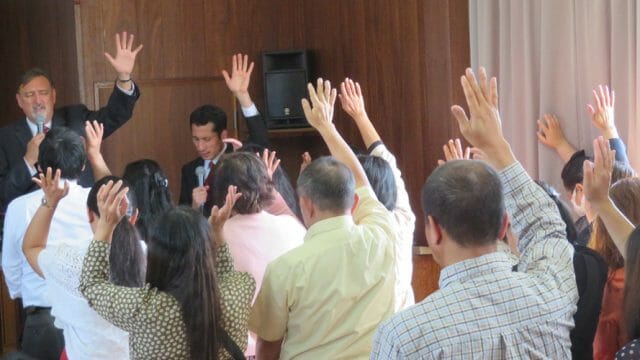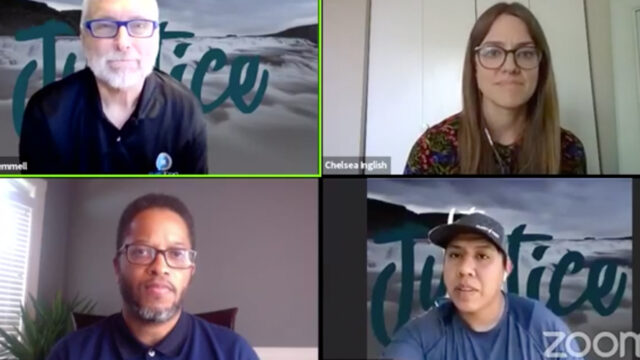Adventist Church offers timely insights into changes introduced by bill

The United States House and Senate passed, and the President is expected to sign into law, H.R. 1 formerly known as the “Tax Cuts and Jobs Act,” which makes certain changes to the United States Internal Revenue Code. Below is a summary of some of the changes that particularly impact the Adventist Church and its employees. It also addresses changes that were proposed but not ultimately passed.
Certain of the changes are permanent and others are set to expire. Given the uncertainty surrounding future tax code changes we have not differentiated between permanent and temporary changes.
This summary is for informational purposes only and should not replace qualified tax counsel. Adventist organizations that have particular questions regarding tax law and its impact on the church can contact Tom Wetmore of the Office of General Counsel.
Moving Expenses
Under current law employers are allowed to pay for and reimburse certain qualified moving expense. In addition, employees are allowed to take an above the line deduction for certain, qualified unreimbursed moving expense.
This bill makes those payments and reimbursements taxable. Starting in 2018, when a denominational employer pays to move an employee, that will have to be reported as taxable income.
Tuition Assistance
The taxability of Tuition Assistance remains unchanged. The House version of the bill would have taxed Tuition Assistance for education employees at all levels. However, the final bill did not include this change.
Those who receive the Tuition Assistance but do not work for an educational system are taxed on this benefit and will not be affected.
Johnson Amendment
Current tax law prohibits non-profits (including churches) from opposing or supporting a candidate for elected office. This provision has been called the Johnson Amendment after then Senator Lyndon Johnson who introduced the provision.
The House version would have allowed all non-profits to support or oppose candidates as long as it was in the “ordinary course” of business and was not more than a de minimis expense. The final bill did not include this change.
Charitable Contributions
Charitable contributions are not changed except that the percentage of income limitation for cash contributions has been raised from 50% to 60%. Some in the nonprofit community have been concerned that the roughly doubling of the standard deduction ($12,000 for individuals and $24,000 for married couples) will decrease the number of people who itemize and therefore decrease the value of the charitable deduction. What impact this will have on tithe and other charitable giving is unknown.
Section 529 Qualified Tuition Programs
Currently section 529 of the Internal Revenue Code allows for tax free savings plans for post-secondary education. This bill extends the eligible expense to primary and secondary education. This change could have a potential benefit for Adventist education and should be further explored and promoted.
Graduate Tuition Waivers
The non-taxability of tuition waivers for graduate students remains unchanged. The House version included a provision that would have taxed the “free tuition” graduate students get in exchange for teaching or research. However, the final bill did not include this language.
Student Loan Interest
The deductibility of student loan interest remains unchanged. Student loan interest can be deducted, up to $2,500-depending on Modified Adjusted Gross Income. The House version of the bill would have removed this provision, the final bill did not include this change.
Classroom Expense Deduction
Current law allows K-12 educators to take an above the line deduction up to $250 for unreimbursed classroom expenses. The House version of the bill would have removed this provision, the final bill did not include this change.
Unreimbursed Business Expenses
Current law allows for the deductibility of certain unreimbursed business expense subject to a 2% floor of Adjusted Gross Income. Certain church employees, especially those with significant travel, take a deduction for the difference between the allowed IRS per diem and mileage rates and those allowed by church policy.
This bill no longer allows the deduction of certain miscellaneous expense, including unreimbursed business expense listed above.
Parsonage Allowance/Exclusion
The “Tax Cuts and Jobs Act” did not, at any stage, make changes to the parsonage allowance/exclusion. The final bill also makes no change to this benefit.
However, recently a federal judge in the Western District of Wisconsin, in Gaylor v. Mnuchin, held the parsonage allowance and exclusion from income to be unconstitutional. But, she stayed her decision until 180 days after the appeal process is complete. Her ruling will not have any immediate impact on this issue.
The Adventist Church is actively monitoring this case. We are also likely to become involved as amici curiae in the appeals. We anticipate this issue will eventually be resolved by the United States Supreme Court.








